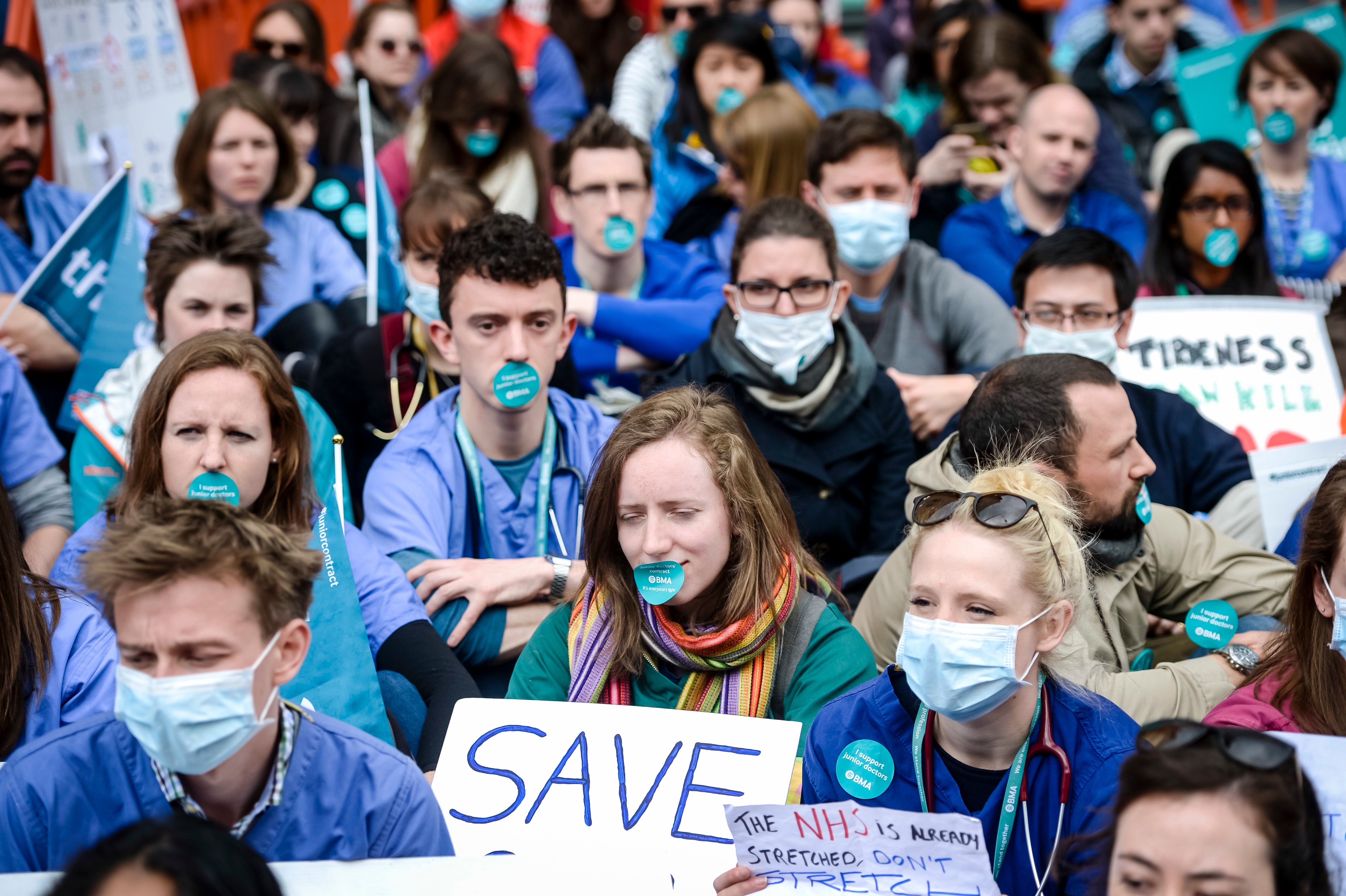‘NHS won’t cope’: 40% of junior doctors plan to quit, survey reveals
33% plan to work in another country next year, BMA poll finds

Your support helps us to tell the story
From reproductive rights to climate change to Big Tech, The Independent is on the ground when the story is developing. Whether it's investigating the financials of Elon Musk's pro-Trump PAC or producing our latest documentary, 'The A Word', which shines a light on the American women fighting for reproductive rights, we know how important it is to parse out the facts from the messaging.
At such a critical moment in US history, we need reporters on the ground. Your donation allows us to keep sending journalists to speak to both sides of the story.
The Independent is trusted by Americans across the entire political spectrum. And unlike many other quality news outlets, we choose not to lock Americans out of our reporting and analysis with paywalls. We believe quality journalism should be available to everyone, paid for by those who can afford it.
Your support makes all the difference.Four in ten (40 per cent) of junior doctors plan to leave the NHS as soon as they can find another role, a new poll suggests.
Pay and poor working conditions were the main reasons cited for wanting to leave, according to the British Medical Association (BMA) poll, ahead of planned strikes next year.
The BMA warned that the NHS “would not be able to cope” without two fifths of its junior doctor workforce.
One third (33 per cent) of the 4,500 junior doctors in England surveyed said they were planning to work in another country in the next year, with Australia and New Zealand were the top destinations.
It comes ahead of an industrial action ballot of junior doctors in England, which will open on Monday 9 January. Some 45,000 junior doctors will be balloted in the row over pay.
The BMA said that pay for junior doctors has fallen by more than a quarter in real terms since 2008-09.
BMA chair of council, Professor Phil Banfield, said the sitiation was “severe”, adding: “A third of junior doctors are planning to work in another country. Four in ten say that as soon as they can find another job, they will leave the NHS.
He added: “The health service will simply not be able to cope. For decades the NHS was the envy of the world. But without our doctors’ expertise, the country will get sicker.
Warning of strike action ahead, Prof Banfield said: “We will not accept impoverished healthcare for our nation ... In 2023 we will stand together with patients, an organised workforce ready to act.”
Dr Vivek Trivedi, co-chair of the BMA junior doctors committee, said the figures were “hugely concerning”.
“If our government doesn’t act now, it doesn’t take a genius to see where this will lead: an exodus of junior doctors to foreign countries, with the ones who stay in the NHS facing an ever-increasing workload – until they feel they have no option but to leave too or get burnt out,” said Dr Trivedi.
“If the government wants ‘move to Australia’ to stay off the New Year’s resolution lists of junior doctors this year, it is going to have to start by reversing the 26 per cent real terms pay cut they have endured since 2008 – or at the very least start speaking with us and stop ignoring our repeated calls to address our pay.”
A Department of Health and Social Care spokesperson said: “The Health and Social Care Secretary has been clear that supporting and retaining the NHS workforce is one of his key priorities, and that includes our hardworking junior doctors.
“Our multi-year pay deal with the British Medical Association is increasing junior doctor’s pay by a cumulative 8.2 per cent by 2023.
“We have also invested an additional £90m to provide the most experienced junior doctors with higher pay, increased allowances for those working the most frequently at weekends, and increased rates of pay for night shifts.
“There are record numbers of staff working in the NHS, and we are committed to publishing a comprehensive workforce strategy next year.”


